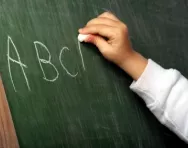Important update from TheSchoolRun
For the past 13 years, TheSchoolRun has been run by a small team of mums working from home, dedicated to providing quality educational resources to primary school parents. Unfortunately, rising supplier costs and falling revenue have made it impossible for us to continue operating, and we’ve had to make the difficult decision to close. The good news: We’ve arranged for another educational provider to take over many of our resources. These will be hosted on a new portal, where the content will be updated and expanded to support your child’s learning.
What this means for subscribers:
- Your subscription is still active, and for now, you can keep using the website as normal — just log in with your usual details to access all our articles and resources*.
- In a few months, all resources will move to the new portal. You’ll continue to have access there until your subscription ends. We’ll send you full details nearer the time.
- As a thank you for your support, we’ll also be sending you 16 primary school eBooks (worth £108.84) to download and keep.
A few changes to be aware of:
- The Learning Journey weekly email has ended, but your child’s plan will still be updated on your dashboard each Monday. Just log in to see the recommended worksheets.
- The 11+ weekly emails have now ended. We sent you all the remaining emails in the series at the end of March — please check your inbox (and spam folder) if you haven’t seen them. You can also follow the full programme here: 11+ Learning Journey.
If you have any questions, please contact us at [email protected]. Thank you for being part of our journey it’s been a privilege to support your family’s learning.
*If you need to reset your password, it will still work as usual. Please check your spam folder if the reset email doesn’t appear in your inbox.
7 common dyslexia questions answered

'My child has real trouble with reading and writing. Could they be dyslexic?'
Yes, trouble with reading and writing could well be due to dyslexia; if your child's school has been teaching reading and spelling in a systematic way, in line with the National Curriculum, and your child is still struggling, then dyslexia is probably the most likely reason.
However, you should also have your child’s eyesight and hearing checked. Quite a large number of children have undetected hearing problems and this is another reason why learning to read and spell can be hard.
The only definite way to find out if your child is dyslexic is through a diagnostic assessment that a psychologist or specialist teacher can do.
You do not have to wait to get such an assessment before taking action and lots of useful things can be done that are simply good practice for most struggling readers. However if it is important to you to know for sure, or if some attempts have already been made to address the problem which haven’t worked, then an assessment is a good idea.
If the school can’t arrange this, independent organisations can provide this service for a fee.
'I think my child is dyslexic but her teacher doesn’t agree.'
The first thing to do is to get an agreement on whether there really is a problem and, if so, what needs to be done about it, and to worry less about different views about what to call the problem. If there is recognition that your child has a need for support and something positive is being done, that is the main thing.
However, if you really can’t agree, or you feel the teacher thinks you are worrying un-necessarily, you can ask to meet with the school’s Special Educational Needs Co-ordinator. You can also seek an independent assessment from other independent professionals.
About a quarter to a third of people who are assessed are not found to be dyslexic so don’t be influenced by those who think you ‘pay for a label’. It is no good at all to have the wrong label!
As I’ve already mentioned, what matters most is that the right action is taken.
'Homework is very difficult. What can I do to make the process easier?'
Homework can be a major challenge, but there are things that you can do to help.
Consider whether your child has a suitable place to do his/her work, which might be away from distractions for some, or listening to music for others.
What is the best time of day for your child to do homework? For some this is mornings before school, for others straight after coming home, and for others after a snack and period of TV. Discuss with your child when the best time is, encourage a routine and try to avoid leaving homework until the last minute.
You could also talk to your child and their teachers about how messages for homework get home. It is very common for the real problem to be that children didn’t understand what they were supposed to do or didn’t make notes in a form they can read. Can instructions for homework be put on the school’s website? Can children use audio recorders to make note of instructions? Think about what systems you can use to help your child remember the right books and equipment that is needed, at the right time and in the right place.
Of course, you should not do homework for your child, but helping them organise what they need in order to do the work can make a real difference.
'I have a dyslexic child. What can I do to support his learning at home?'
The number one thing I would suggest you do is something completely unrelated to reading, spelling, homework or learning – make it a priority to help your child do more of something they really like and are good at!
Of course learning matters, but if you are dyslexic you will always take knocks and the most important thing to do is to withstand those knocks and get going again. If children know they can succeed and experience success and encouragement they are much more likely to believe in themselves and work through in those areas they stumble or fall.
Sometimes, of course, it is good to work on problem areas at home, but I would always encourage this to be something that is driven from the outside rather than something you impose as a parent. Be careful that you aren’t trying to help your child at a time of day that isn’t good for them or for you.
You need to be positive and encouraging and never suggest that your child has ‘something wrong with them’. This can be hard when, for example, they read a word in five different ways on the same page, but it will not help to get exasperated. Your main job is to be a parent, the main job of teaching falls to teachers.
'I’ve read about learning aids for dyslexic children. Are they any good?'
Computer programs can play a role, but again it is better to use these as part of a plan that an expert has put together so you know what level to work at. Examples of programs to consider are Wordshark and Nessy.
For older children, assistive technology is playing an increasing role. Word-processors and ‘dyslexia sensitive’ spellcheckers are invaluable, as are programs that allow ideas to be organised in a more visual way (using mind maps, for example).
'Is there any help with the cost of tutors and how should I choose one?'
Not all dyslexic children need a tutor; with an understanding and supporting class teacher, and perhaps a bit of extra work that school can organise, many children with dyslexia can and do make good progress.
However there are times when a boost can he useful and the evidence shows that taking action early is generally most effective in the long-term. If you do use a tutor, it is really important that you get someone who understands about dyslexia, can offer a range of types of support, has regular updates to their training and is subject to quality assurance routines.
The costs of specialist support over a long term do add up, but support may be available through local bursary funds, for example. Remember, however, that a short period of the right kind of highly targeted specialist support can make more difference than many hours of more general learning support.
'Are dyslexic children allowed to use the computer more?'
Typing isn’t necessarily easier than handwriting, but there are enormous advantages to using a word processor both for checking spelling and getting a neat legible print out.
I support the idea that handwriting matters and all should be taught it. In fact many people with dyslexia learn to spell better using what is called the ‘kinaesthetic’ method which involves developing a kind of movement memory for the way words are produced. However, some people with dyslexia have extra difficulties with motor control and for them it is important to investigate what works best for them individually.
In general, schools are using keyboards much earlier than they used to and there is no evidence that this is making handwriting worse.
Dyslexia Action is a leading provider of dyslexia training courses, accredited programmes that provide training for practitioners working in the field of dyslexia and specific learning difficulties (SpLD).









